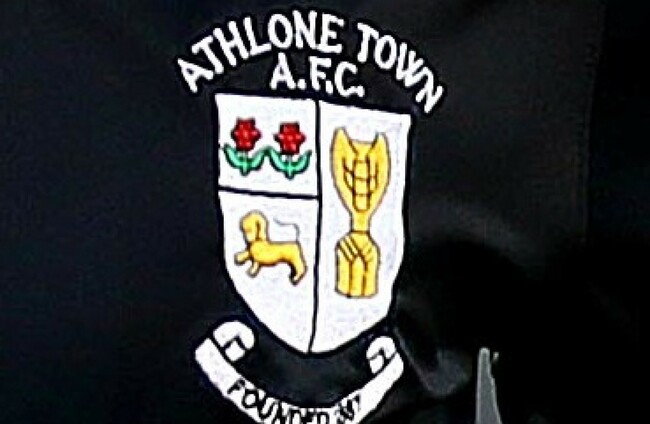HOW CAN A club owe players money and still get a licence to play in the League of Ireland?
It’s a question which has cropped up recently following stories surrounding Bray Wanderers and Athlone Town.
Last week, Bray district court ordered Bray Wanderers to pay Darren Quigley €6,100 in unpaid signing-on fees. Quigley had been in a public and vocal battle with Bray since 2014 over the monies owed.
The question that the FAI faced was how Bray Wanderers were awarded licences in 2015 and 2016 if this money was owed.
The answer is straightforward. Because Quigley had taken legal action, the FAI could not take any action. It is that simple.
Once a dispute becomes a matter for the courts, the FAI can’t act until the court has reached a decision. While Quigley’s case has been proven and he was undoubtedly – and understandably – frustrated by FAI’s inaction, the Association had to consider the impact if they had denied Bray a licence to play in 2015 and 2016 only to have the court find in Bray’s favour.
Regardless of the information in their hands, the FAI had to wait for the outcome from the courts.
However, now that the legal case has been decided, the FAI could deny Bray Wanderers a 2017 licence should they fail to honour the debt to Quigley.
Athlone’s situation is messier and more difficult to address given the attendances the club has had over recent months. Just 800 fans have paid in across the club’s last six home games.
Some weeks ago Alan Mathews gave a radio interview to Midlands 103 where he recalled a public row between officials of Athlone Town and members of the Drogheda United travelling party. The latter claimed they were owed money from previous work for Athlone Town.
Then last week the amateur members of the squad, who reportedly were owed three weeks’ worth of expenses, refused to travel to Waterford United for a match.
It was embarrassing for the league and the FAI. The Association has come down hard on Athlone, awarding a 3-0 win to Waterford United and fining the club €5,000, €4000 of which was suspended.
The same question arises, how can any club get and then maintain a licence to play in the league owing money to players? How does licencing work in this regard?
The starting point of licencing is that every club has to submit audited accounts recording the financial state, and overall health, of the club. Each club must also hold a Tax Clearance Certificate from the Revenue Commissioners.
Then clubs submit their projected budget for the coming year as part of licencing. This is reviewed at a meeting between the club and FAI in January before the licences are awarded. In this meeting, you have to address how you will run your budget while addressing monies owed.
The FAI can tell – and have told – clubs to amend their budget if they feel it is unrealistic, threatening to pull support of the licence. But a club – like any company – can have a realistic budget and plan, even in heavy debt. The type of debt is important.
The FAI classifies debt in two types: ‘football related debt’ and ‘non-football related debt’. The former is money owed to the FAI, other clubs, players, managers and coaching staff. In reality, this is the only debt that counts.
Clubs can carry over trading debts or capital debts — such as a mortgage – and once a coherent plan is there, a licence will be awarded. Money can even be owed to an off-field employee without an impact on licencing. Only football debt counts and once a club can speak competently to their plan on ‘non-football related debt,’ their licence will be unaffected.
But here’s the thing. The person owed has to object to the licence and formally make the FAI aware of the debt. Otherwise it can be completely swept aside.
If you owe a football debt – whether the FAI are aware or not – you have two courses of action: pay it or come to a repayment plan.
Usually, players and managers will enter into a “scheme of arrangement” and sign such an agreement. If someone is owed €1,000, they might sign an agreement to receive €100 per month from January to October. If the FAI are aware of the debt and see the signed agreement, they have no reason to deny a licence.
Problems can arise if, following the awarding of licences, the club doesn’t pay the February instalment. In this case the licence has been awarded and cannot be revoked, but the player only has €100 of the €1000 owed. He may have to wait until the end of the season to challenge the next licence application.
It’s a loophole that the FAI can’t close right now. To revoke a licence during the season would cause massive issues to all clubs, not just the one concerned and it would put a large number of livelihoods at risk, beyond the individual to whom the money is owed.
Also, it shouldn’t be assumed that a scheme of arrangement breaking down is intentional. Sometimes clubs simply do not have the money.
Of course, if a club doesn’t have the money, how did their budget get approved in the first place? The FAI can only deal with the information placed before them, not in conjecture or anecdotes.
If that information is unrealistic, but backed by a believable story, which is often the case, maybe fans need to look at the clubs themselves a little more critically – rather than automatically pointing the finger.
The42 is on Snapchat! Tap the button below on your phone to add!











That will be mental!
What about the Scotland fans?
Should be a great occasion and atmosphere!
Ah lads, couldnt we go to Ibrox?
No guarantee it would till be “Ibrox” by then….. might belong to the Liquidators…..
Someone threw a pound on the pitch at ibrox and police are investigating whether it was a missile or a bid to buy the club :)
Pound? Bit steep for Rangers
Two home games for Ireland!
Well I’m sure the Celtic supporters will be supporting their own Country, right?
Do you think it will be a crowd made up of Irish and Celtic supporters only? Celtic supporters will support their own country anyway.
Majority of Celtic supporters support the Republic of Ireland……..
of course they will be supporting their own country, why would celtic fans in Glasgow want to support west liverchester?
Bollocks to the notion that the majority support Ireland
Surely the majority of Celtic Supporters born and raised in Scotland would support Scotland? Irish connection aside, they are a Scottish club so logic would suggest they’ll support their National side.
Exactly why would they want to support a country full of English fans
Barstoolers must be watering at the mouth, where is Glasgow in Ireland. EMBARRASSMENT”
Majority support scotland with a bit of a gra for Ireland. A smaill minority of hardcore support Ireland.
Hung if you haven’t got a breeze what you are talking about don’t comment
Where is Liverpool, Manchester, London or Newcastle in Ireland. The last time I checked there was no ban on people supporting which ever team they want to…………
Frankie Boyle will be delighted.
Can’t wait for it#COYBIG
Session on
Yeah once the session is on and we have the ‘craic’ sure the match itself is only secondary … Je*us wept
Screw the session chris, looks like someone thinks you’re one of the players.
Jackie Macs testimonial with a game against Ireland was fantastic, even the zombies stayed in hiding and didn’t cause any trouble, Glasgow truly was Green & White that weekend
More fans in the Scotland will know the words of the irish national anthem than in the irish end
Hail hail……..
not since celtic played arsenal in a CL qualifier a few years back has there been so many EPL fans packed into the away end at celtic park
Home from Home.
Absolutely nothing wrong with that now!
Scotland could be an independent country by the time the
match comes around, if they vote ” yes ” to leaving the U.K.
In the referendum in September.
They better make sure that they have the required license needed before they sell tickets
That joke was boring last week
Apparently street sellers in Glasgow have ordered hundreds of green St Georges cross flags that play the match of the day tune when you wave them for the ole ole brigade
Surprised they’ve not taken the opportunity to play some qualifiers in the Capital. Oh well, a train journey and a trip to dark head it is!
None of the stadiums are big enough, apart from the rugby one. I doubt the Scottish FA want to be knocking on their door when they have a bigger stadium in a city which cares more about football.
Why not? They’ve played Internationals in Easter Road before. Murrayfield is a nicer ground than any other in Scotland. It’s not a secret that the SFA will be paying Celtic and Sevco handsomely for use of the grounds, which they probably wouldn’t have had to do at Murrayfield. The chances of Celtic Park being filled are near enough 0 anyway.
Cares more about football? Tell that to any Hibs, Hearts or Aberdeen fan and they’ll tell you that’s rubbish. Supporting Celtic and “The” Rangers is the easy option in Scotland, just because they’ve more fans doesn’t mean Glasgow cares more about football.
The game is in Paradise not in the egg chasers ranch, dry your eyes and move on
That will be some shit game
That will be some sing off ( oh and match of course)